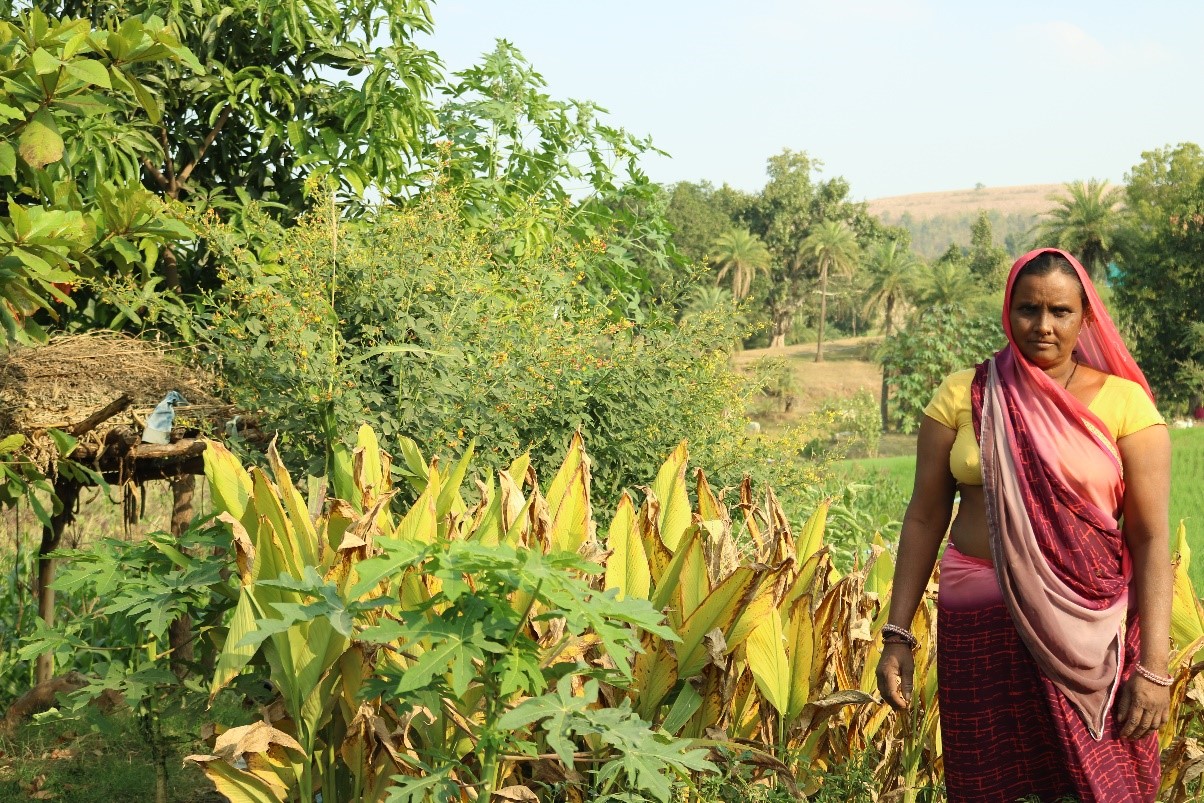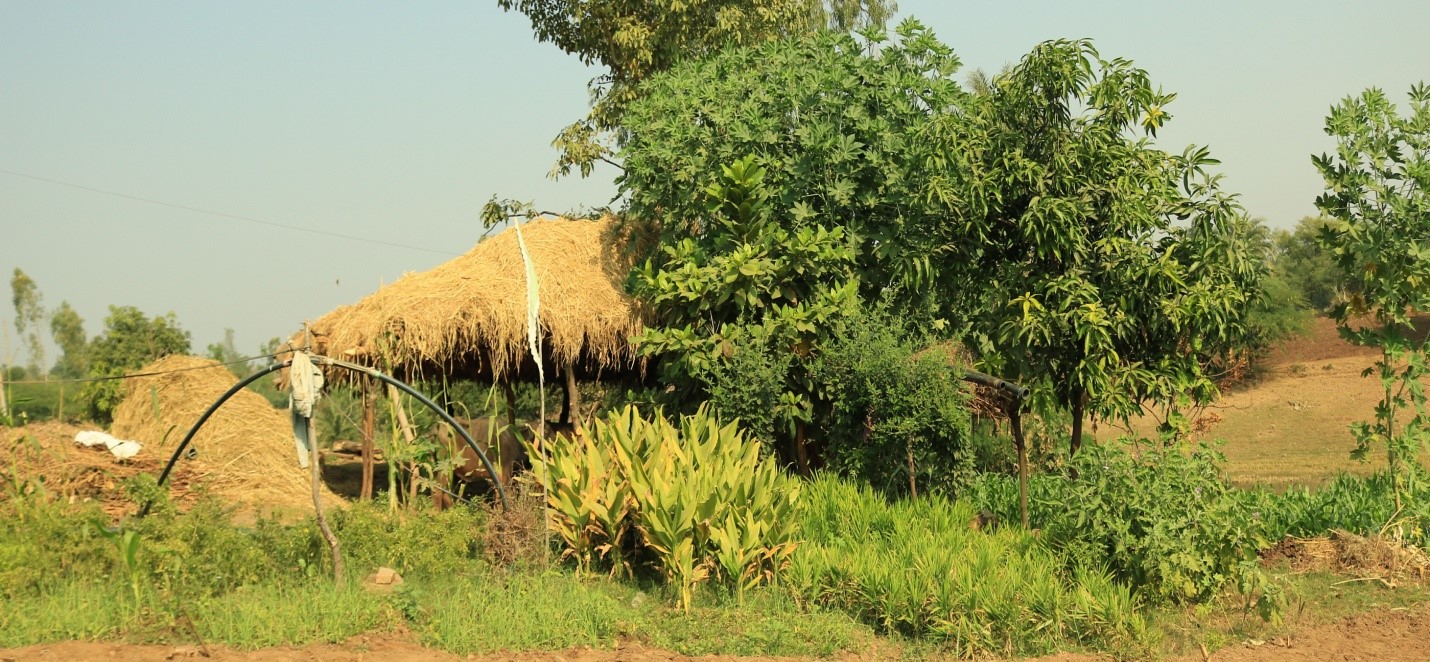
Background
Nirmala Mahipal lives with a family of seven in Gamana village within Anandpuri block of Banswara district in Southern Rajasthan. Her family relies mostly on farming for their diets and livelihood. She is a woman who has been actively engaged with self-help groups and has worked with VAAGDHARA for the last 2 years. Prior to DWLEM she had participated with VAAGDHARA’s Vari program. Though her previous experience was not overtly successful she was open to joining the DWLEM kitchen garden intervention. The reason for her intrigue in the program was due to the nature of her family’s diet.
Nirmala mentioned that prior to joining the program her family’s diet lacked diversity and consisted mostly of the crops they could grow on their farmland or what they could purchase in the market. Regarding farming, this meant mostly grains or seasonal vegetables such as eggplant. Nirmala further noted that relying on the market for food can be costly; thus, their family could not expand their diets through the market.

Intervention and Results
A key intervention through the DWLEM program is distributing seeds through SHGs and helping create kitchen gardens near hand-pumps or where families are disposing of waste water. These kitchen gardens are meant to increase food diversity in the diets of the participating families and reduce reliance on the market for introduced fruits and vegetables.
According to Nirmala, the kitchen garden has been impactful for her family and in her village. She began participating with the project in July of 2017. As seen in the photo above the initial batch of seeds have since grown into a beautiful, diverse, garden. This garden includes turmeric, garlic, onion, ginger, papaya, torai, chilli peppers, pigeon pea (toor), eggplant, green leafy vegetable and tomatoes. She planted fruit plants such as Mango, Guava, lemon and almonds. Nirmala proudly claimed that the foods grown in the garden were being utilized in recipes within their home. Additionally, she said the quantity was more than sufficient for the foods to be distributed equally for the whole family. The intervention has also been successful in reducing reliance on the market. Per Nirmala, some of the few foods which her family still relies on the market for are spices, black pepper, and oil.
Nirmala’s kitchen garden is placed next to the area where the family washes dishes. In addition to the waste water there is also a borewell which helps maintain the kitchen garden. Nirmala noted that electricity can be unreliable in her village. Since the garden can be maintained with waste-water, it doesn’t require intense irrigation and they can maintain their garden and their diets regardless of the limited electricity.
Future Plans & Needs
A second batch of seeds for seasonal additions to the kitchen garden will be disbursed in the SHG meetings in the coming months. This new batch consists of spinach, fenugreek, and carrots. As a part of the project Nirmala and all participants are encouraged to exchange seeds with other households to increase food diversity within the whole village. Seed exchange and proper maintenance of the kitchen garden will allow this intervention to be sustainable for the foreseeable future.

